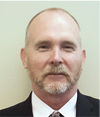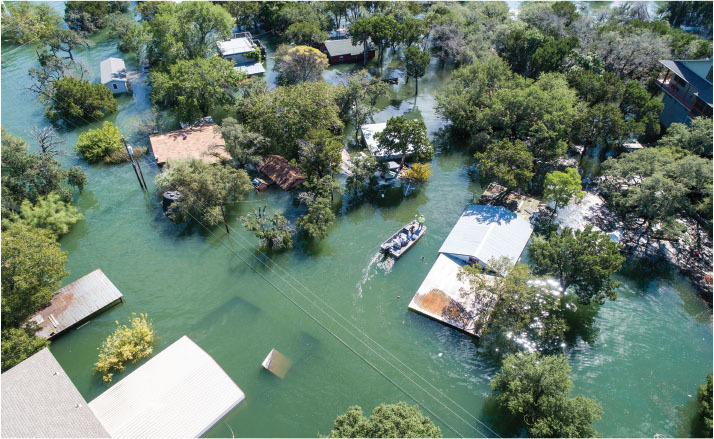January/February 2019
Concepts
‘Regulatory Overreach’ Claims Don’t Mean Rules Should Be Ignored
BY KARL TONANDER, P.E.
 As a professional engineer licensed in several states, I’ve learned that I have to be alert to the subtle differences in renewal time frames, professional development hours, sealing requirements, and firm registration requirements. As a principal with my firm, I have to not only look out for the company with respect to its many registrations but also assist the other professional licensees. As a member of the New Mexico Board of Licensure for Professional Engineers and Professional Surveyors, I have a duty to the people of my state to keep a watchful eye for licensees who have made mistakes in judgment and for nonlicensed practitioners who may be endangering the public, either intentionally or in error. These responsibilities are part of my role. I can choose to accept them, or I can choose another professional path. What I can’t do is ignore them when inconvenient or uncomfortable.
As a professional engineer licensed in several states, I’ve learned that I have to be alert to the subtle differences in renewal time frames, professional development hours, sealing requirements, and firm registration requirements. As a principal with my firm, I have to not only look out for the company with respect to its many registrations but also assist the other professional licensees. As a member of the New Mexico Board of Licensure for Professional Engineers and Professional Surveyors, I have a duty to the people of my state to keep a watchful eye for licensees who have made mistakes in judgment and for nonlicensed practitioners who may be endangering the public, either intentionally or in error. These responsibilities are part of my role. I can choose to accept them, or I can choose another professional path. What I can’t do is ignore them when inconvenient or uncomfortable.
Recently, I caught up with a close friend. During our conversation, he mentioned how much he liked his new job. I asked a few more questions and came to realize that his firm, which essentially provides highly specialized computer program development to public and private entities nationally, held several of its employees out as software engineers and itself out as a company providing software engineering—but there were no professional licensees.
In the past, I would have let this pass without a second thought, perhaps not even realizing that my friend’s firm could be in violation of state regulation. There was no intent of malice or deceit on their part, just a lack of awareness. But now, given my experience on the National Council of Examiners for Engineering and Surveying’s Law Enforcement Committee and on my state board, I advised him that he should contact the board staff to determine if there is a conflict and, if so, how to resolve it in a way that would minimize any impact to his business.
The challenge that we now seem to face is a growing tide of pushback on professional licensure. If you act as a board, particularly on nonlicensees, are you inviting lawsuits? Will it actually harm the profession through journalistic exposure (or misrepresentation)? It certainly fuels a narrative of regulatory overreach, which is one of several mantras in today’s political discourse.
Similarly, “piling on” is a term that seems to have taken on a life of its own and is too frequently misapplied. When a licensee is disciplined in another jurisdiction, neighboring boards have a duty to evaluate the circumstances of that discipline. A licensee’s failure to report action taken by another jurisdiction is usually a new infraction, which in itself warrants action. This is not piling on, not when it involves a serious professional lapse that, while in another jurisdiction, may reasonably result in harm to the public. In those cases, additional restrictions on that licensee do not represent piling on. That said, I do understand that a relatively minor infraction in a neighboring jurisdiction, such as failure to date a document, is likely not something worthy of further action locally. Prudent and equitable enforcement should be the goal.
In the end, it seems that state boards are in an ever-more precarious balancing act between enforcing rules that have been established for decades or taking a more moderated approach—maybe for no other reason than to avoid potential political conflict. What is in the best interest of the public and profession? Through service on my board, I’ve adopted a more conservative view. We have rules for a reason, and while the easiest answer is to let some of these infractions pass without action, I believe that weakens the entire system. Arguably the rules themselves need to evolve, but ignoring the rules that currently exist is done at the peril of not having the backing of law when you need it.
Karl Tonander, P.E., is a member of the New Mexico Board of Licensure for Professional Engineers and Professional Surveyors and a member of the 2018–19 National Council of Examiners for Engineering and Surveying’s Committee on Law Enforcement.
This article is republished with permission from the October 2018 issue of NCEES’s Licensure Exchange.


 Volunteering at NSPE is a great opportunity to grow your professional network and connect with other leaders in the field.
Volunteering at NSPE is a great opportunity to grow your professional network and connect with other leaders in the field. The National Society of Professional Engineers (NSPE) encourages you to explore the resources to cast your vote on election day:
The National Society of Professional Engineers (NSPE) encourages you to explore the resources to cast your vote on election day:



